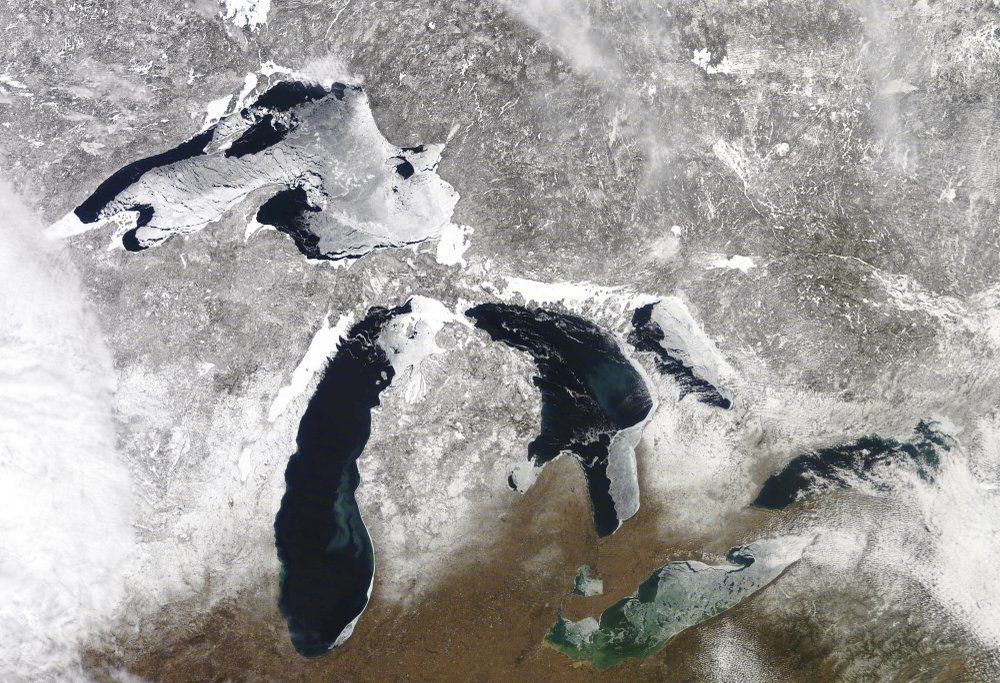Ontario’s agricultural sector contributes to a vibrant food system and prosperous economy that nourishes our communities and promotes health and well-being for everyone. Unfortunately, farming also has an environmental impact. Modern farming uses a lot of chemicals, nutrients, fossil fuels, and water to produce the food that we all rely on. With the explosion in global population and changing diets, we are increasingly seeing the impact of agriculture on our environment, including declining water quality and supplies.
To protect the water that we all rely on, we need to be honest about the major sources of pollution, including agriculture. At the same time, we need to be smart and realistic about the best ways to reduce environmental impact. This means that those interesting in protecting water need to learn more about how its being managed on farms so that we can work together to find reasonable solutions.
The other week, I went to a workshop hosted by Farm & Food Care, a organization based in Guelph that represents thousands of Ontario farmers and their associated businesses. They cultivate awareness and build appreciation for farming and food in Ontario. I was so impressed by water knowledge in the room. Below are five things that I took away from the meeting that will influence my ongoing work to protect the Great Lakes.
1. Farmers know a lot about water
I heard presentations from farmers who described how much water falls on their land, where it flows, what’s in it, and what happens when it leaves their property. They have binders of information that documents daily water use on their farm. They use this information to plan how much water they will need tomorrow and where to put it. It seems as if many farmers have paid attention to the old adage: “You can’t manage what you don’t measure”, which is a critical step forward!
2. Farmers are doing a lot to manage water effectively in Ontario
Needless to say water is one of the most critical “ingredients” of farming, and farmers know this. Many of them have well-documented plans to ensure they will have enough water and alternative supplies, in case of drought.
Farmers need a lot of water, so perhaps more than most Ontarians, they are aware that saving and re-using water can save them money. I heard about farmers who have ways of capturing and using every drop of water that falls on their property, even from the roofs, parking lots and roads.
Today’s farms are quite sophisticated. They are using advanced technology like GIS and the latest academic research to make decisions that are most cost-effective, efficient, and have a minimal environmental impact.
3. There are enormous differences between types of agriculture
You cannot look at the agricultural sector as one monolithic group of water users.
Each sector within farming (e.g., livestock, grain, vegetable, fruit, etc.) has their own set of strengths and risk factors. If we are going to identify where real progress can be made, we need to distinguish between different types of farms and understand what is economically feasible for each sector.
Ontario’s greenhouse sector includes some of the world’s leaders in determining exactly how much water each plant needs and when—so as not to waste a drop. As such, asking them to reduce their water use further might not be economically feasible. But it may be worth asking the greenhouse farmers to share their knowledge with other sectors, where there might be more room for improvement.
4. One lot at a time, one concession at a time, one farmer at a time
Farmers are taking steps to use less water and keep it clean, but progress can be slow. The culture on many farms is such that new approaches are picked up when a farmer talks to someone he knows that has tried something that worked. Context is also important and what works on one farm may not work on another.
This presents a significant challenge for those of us who are looking for quick and widespread uptake of new approaches to farming so we can continue to decrease negative impacts on water quality.
5. Importance of outreach and field staff
Given how technical and specialized modern farming is, it’s no surprise that farmers might need a little help doing the research and implementing new stewardship practices. I heard one story where experts from the University of Guelph helped one farmer determine that he could use 30 per cent fewer nutrients than what the manufacturer recommended without affecting crop yields. As a result, he saved money and reduced his environmental impact.
Outreach and extension staff from universities, research groups, conservation authorities, and the provincial and federal governments will be critical if we are to improve uptake of new environmentally-friendly approaches.
Agriculture is an important part of Ontario’s economy and way of life. Environmental Defence plans to sit down with farmers to see how we can work together to protect water quality while sustaining the economic vitality of the sector.







